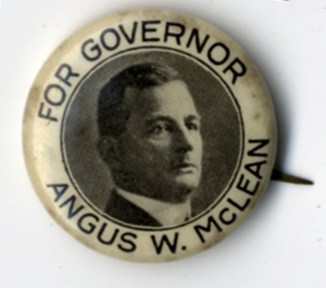“Many American place-names are purely arbitrary coinages,” H.L. Mencken noted in “The American Language” (1921). “Towns on the border between two states, or near the border, are often given names made of parts of the names of the two states, e. g., Pen-Mar (Pennsylvania+Maryland), Mar-Del (Maryland+Delaware), Texarkana (Texas+Arkansas), Kanorado (Kansas+Colorado), Tex-homa (Texas+Oklahoma), Dakoming (Dakota+Wyoming), Texico (Texas+New Mexico), Calexico (California+Mexico). Norlina is a telescope form of North Carolina….”
Mencken’s mention may have been the high point of Norlina’s national prominence. The town’s population has hovered around 1,000 for the past half century, as it was first bypassed by I-85 in 1960, then abandoned by Amtrak’s Silver Star in 1986. Last year it even lost its library.
For a glimpse of a more robust era in Norlina, check out this postcard of the American Tavern on U.S. 1 from the Durwood Barbour Collection.


